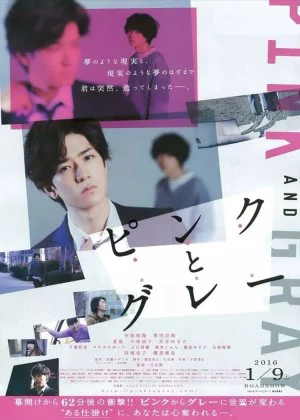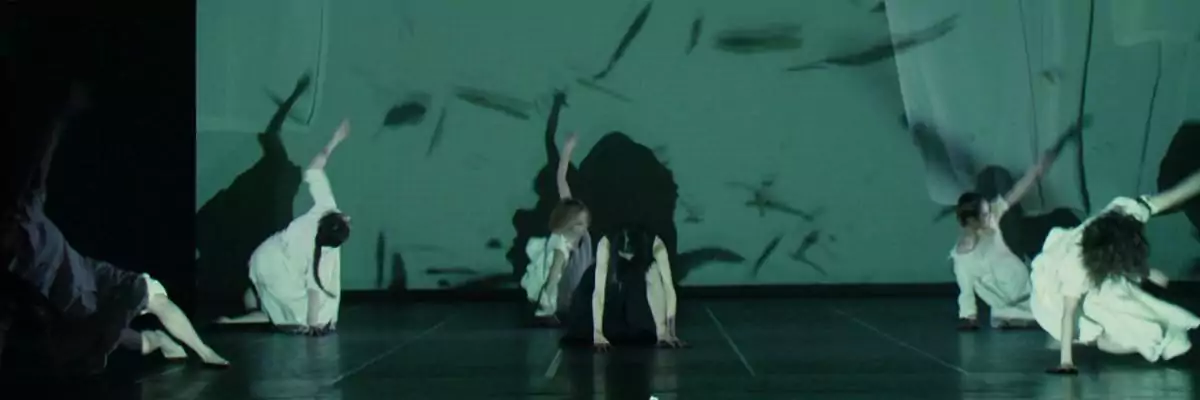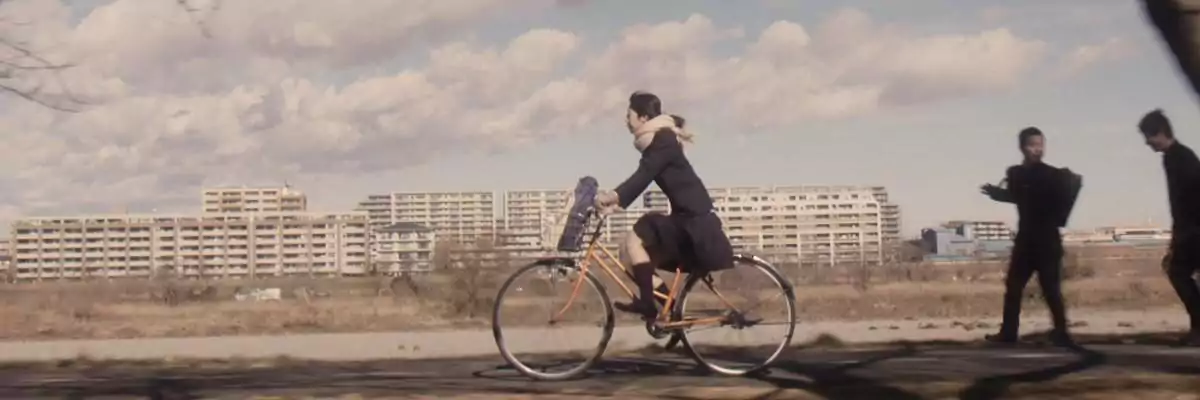Pink and Gray

Isao Yukisada is a longtime favorite amongst Japanese drama enthusiasts, but his films tend to take their time before reaching Western shores. Pinku to Gure [Pink and Gray] was released in 2015 and only recently found its way over here. It's a film that should feel quite familiar to Yukisada enthusiasts, while at the same time offering something that's surprisingly novel and daring. It's a welcome change of direction for a director who isn't known to bewilder his audience very often.

Before continuing the review, let me warn you that it's going to be somewhat spoiler-heavy. If you're already convinced you want to see Pink and Gray and you prefer to go in fresh, it's best to just stop reading right away. I tend to avoid spoilers where possible and I will do so in this review too, but in Yukisada's case the fact that there are spoilers is pretty much a spoiler in itself, certain to affect the way you go into this film. On top of that, Pink and Gray leans so explicitly on the element of surprise that it's simply impossible to ignore here, unless I'd scrap the review as a whole.
Yukisada is probably one of the most consistent directors I know of. He learned the trade under Shunji Iwai and hasn't deviated a lot from the style he cultivated for himself. That makes that his films are indisputably well-made, but they are also a little safe and predictable. It's always easy to watch a new Yukisada as he never disappoints, but it's a slightly tougher bet if you're looking for something to cherish, as his work often falls just a little short of genius. To see Yukisada abuse that very fact in Pink and Gray is pretty entertaining though.
The film starts with pop idol Rengo Shiraki taking his own life. Daiki Kawata, his life-long friend, discovers the body and becomes the center of attention when the media finds out about their friendship. The film jumps back in time and recounts the moments and events that moulded their relationship, up to the very point where Rengo decided to hang himself. But when the film comes full circle, there's still 60 minutes of playtime left and that's when things become truly interesting.

The first hour of Pink and Gray is very much in line with Yukisada's trademark visual style. Overexposure is used to good effect, not as overdone as in some of his other films but it's clearly still there. Halfway through the style makes a complete 180 and Yukisada switches to black and white. It's not something I've seen from him before, but he manages exceptionally well. The black and white shots are expressive, well constructed and look very powerful. The first hour looks a little tame in comparison, but I'm pretty certain that was part of the actual setup.
The soundtrack follows a very similar pattern. The first half is pretty predictable, with a decent but also very safe score. Once the films shifts gears the soundtrack follows suit, although not quite as explicitly as the visuals. Still, the second part is a lot quieter and the music that does surface is noticeably edgier and darker. There's some untapped potential there for sure and it's not as in your face as the visual turnaround, but it's well in line with the overall style.
The acting too is up to par. Yuto Nakajima (himself a teen idol and member of a popular Japanese boy band) fits the part of Rengo Shiraki perfectly. Masaki Suda provides a solid performance as Daiki and the two have ample on-screen chemistry. Yuya Yagira (Destruction Babies) has an interesting outsider part and Yukino Kishii acts as the glue between all the different characters. There's quite a lot of pressure on the actors here and they do have to show a broad range, but they all do a splendid job while keeping everything together.

To reboot a film around the halfway mark is always a big risk. You have to find a way to re-engage your audience while not falling into the trap of just repeating the same build-up as before. Yukisada handles it quite ingeniously, with contrasting stylistic choices and a certain familiarity that twists things around while still playing with the very same elements of the first part. The shift is unmistakably there, but the film itself continues quite gracefully rather than starting over from scratch. The cherry on the cake is Yukisada casting himself into the film. His profile as a director actually ads to the twist and it's nice to see he's conscious enough of his own image and output to pull it off.
Pink and Gray starts off a little plain and safe. Yukisada's usual level of finish is clearly there, but there isn't much to set it apart from his other films and it's certainly not his best work to date. Don't let the film trick you though, it will actively try to lull you, only to pull the rug from under your feet halfway through. The second half is a great upset, a worthy twist that shows a different side of Yukisada without throwing everything overboard. Pink and Gray is a pretty great film, but some familiarity with the director will definitely help you to appreciate it to its fullest.